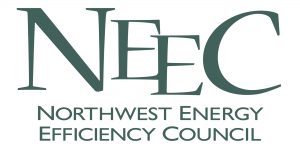City Light would like to share with you the following updates to the Energy Efficiency as a Service (EEaS) pilot program.
- The next project solicitation. We are preparing to open Phase 2 of project solicitations in January 2021. Phase 2 will seek an additional 10 projects with expanded use-cases. Phase 2 solicitation will stay open for 3 months. Upon closing, applications will be reviewed and scored similar to the first solicitation phase. Phase 2 prospective applicants will be provided updated program materials prior to the opening of the next solicitation window. In future solicitations (Phase 3+), City Light will seek an additional 15 projects. The timing for future project solicitations will be determined in Q4 2020. In this next phase, eligibility will be expanded from the first solicitation to include the following non-residential building types:
- Existing buildings:
- City Light account type: Commercial
- Primary City Light account must for more than 90% of the building’s electricity
- Lease type: any
- Ownership type: any
- Size: Min 50.000sf
- Savings target: Project must intend to save 25% of annual electricity consumption
- New Construction:
- City Light account type: Commercial
- Primary City Light account must for more than 90% of the building’s electricity
- Electricity must be sole fuel source for the building (back-ups excluded)
- Lease type: any
- Ownership type: any
- Size: Min 50.000sf
- Savings target: Project must take the C401.3 Target Performance Path code compliance pathway and intend to perform 25% better than code requirement
- Existing buildings:
- M&V Implementation. In September 2020, Seattle City Light concluded a competitive solicitation process, selecting a M&V Consultant to support the program. We are pleased to announce that kW Engineering (with support from Facility Energy Solutions) was the successful respondent and will be implementing the M&V related activities for this program. This highly qualified team is actively developing the program’s M&V Plan, which is based on and will supplant the original M&V Guidelines as the technical rules for how energy savings are calculated and set the standard for information to be shared with City Light and the M&V Consultant in order to determine those savings.
- COVID-19. As you can imagine, COVID-19 has had a significant effect on performance-based programs like EEaS. Many of the brightest minds in the in the industry have worked together over the summer to develop industry standard methodologies for quantifying energy savings resulting from deep retrofits in buildings where operations may look very different than normal, due to the unprecedented times that we are living in. The Efficiency Valuation Organization (EVO)’s International Performance Measurement and Verification Protocol (IPMVP) committee on Non-Routine Events and Adjustments has recently released a new Application Guide on Non-Routine Events and Adjustments. This guide will be a cornerstone for how City Light and others will address the effects of COVID-19 on building performance, and quantifying energy savings resulting from energy conservation measures.
- Future Use Cases. We have received requests on whether the program can be expanded to include existing residential buildings. At this time, City Light is not able to include existing residential buildings. There are unique challenges associated with these building types that need to be explored in greater depth before we can determine if the program can be expanded to include them. The decision to proceed with a second project solicitation now, was made in order to open the door to additional participants who are ready to submit their applications, without allowing additional study further delay project timelines. The primary barriers in the existing residential use case are outlined below. Please do know we are interested in working internally and with stakeholders in the multifamily and master-metered residential property management community to determine if and how we might overcome these barriers. Barriers to residential building inclusion in EEaS:
- Our utility billing and metering system currently does not have the ability to aggregate over 10 unique multifamily residential meters into a single monthly read.
- This is something that may be overcome in future system updates.
- At this time, installing a physical totalizer meter at buildings with individually metered units is not feasible.
- While a policy decision to allow master-metering of multifamily buildings would be initially limited to buildings participating in the EEaS pilot, there are significant cost and revenue considerations that need to be further studied and better understood.
- Residents losing access to the Utility Discount Program and other low income programs offered by SPU, Office of Housing, etc. that are accessed through the residents’ City Light accounts.
City Light is excited to move forward with this next phase of the EEaS pilot. Please reach out to Colm Otten, Senior Program Manager, Customer Care and Energy Solutions, at colm.otten@seattle.gov or (206) 727-3576 with any questions you have.
